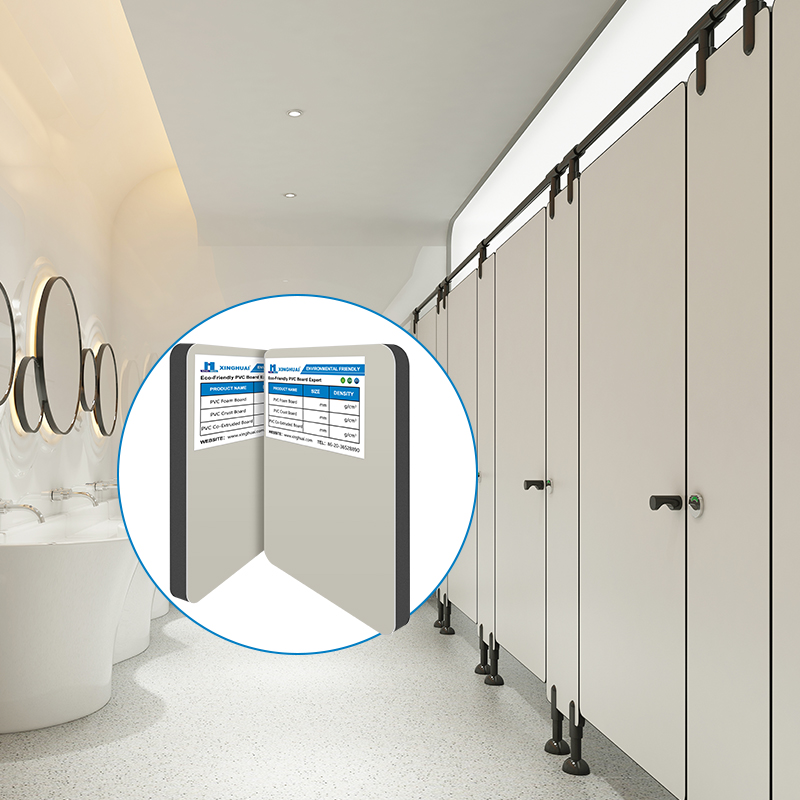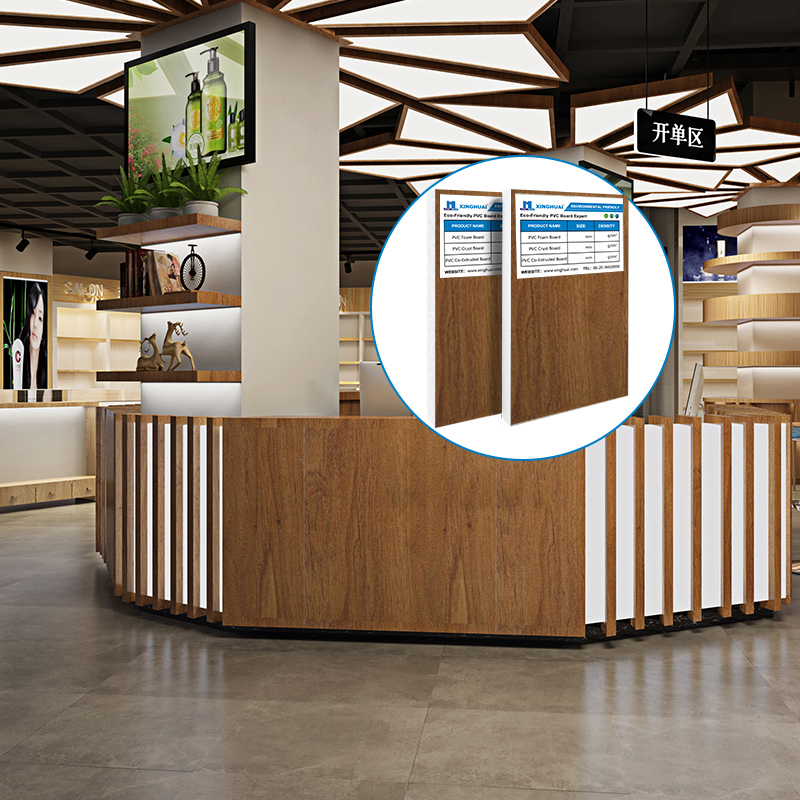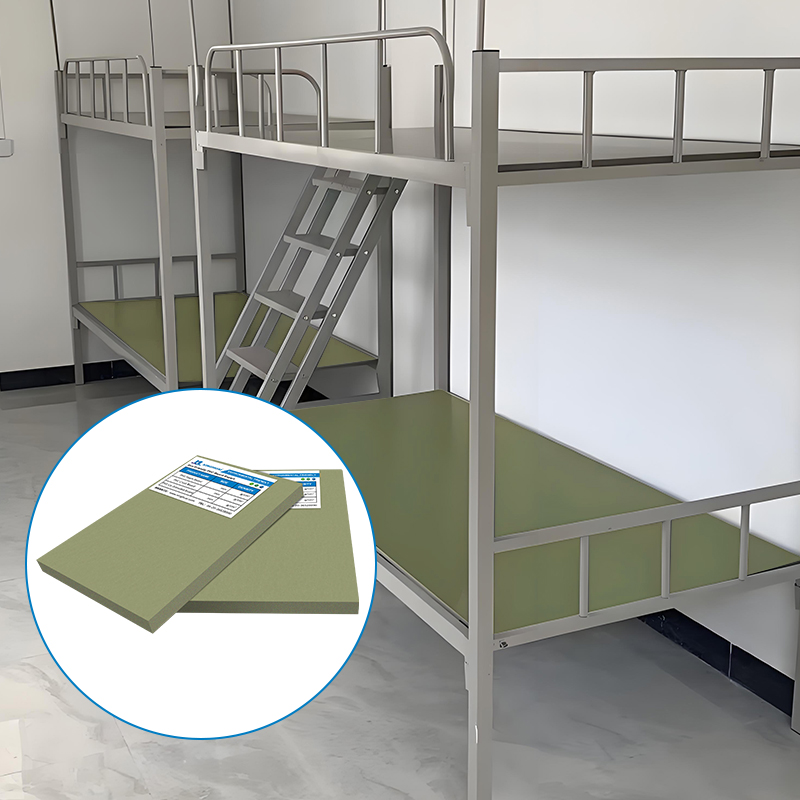In the realm of construction and interior design materials, PVC (Polyvinyl Chloride) sheets have gained significant popularity due to their versatility, durability, and cost - effectiveness. However, a common concern among consumers and professionals alike is whether PVC sheets are easy to deform. To address this question comprehensively, we need to delve into the different types of PVC sheets available in the market, such as 4x8 pvc foam board, pvc foam waterproof, pvc hard foam board, pvc wpc foam board, and pvc coated foam board.
Let's start with the 4x8 pvc foam board pvc foam waterproof. This is a widely used PVC pvc foam waterproof sheet variant. Its size of 4 feet by 8 feet makes it convenient for various applications, from wall paneling to signage. The 4x8 pvc foam board is known for its relatively lightweight nature, which can sometimes raise questions about its deformation resistance. In general, when properly handled and installed, a high - quality 4x8 pvc foam board can maintain its shape under normal conditions. However, exposure to extreme temperatures, especially high heat, can cause it to soften and potentially deform. For instance, if a 4x8 pvc foam board is placed in an area with direct sunlight for prolonged periods without any protective measures, it may start to warp or bend.
Another important type is the pvc foam waterproof sheet. Waterproofing is a crucial feature for many applications, especially in outdoor or high - moisture environments. The pvc foam waterproof sheet is designed to resist water penetration, which not only protects the underlying structure but also plays a role in its deformation characteristics. When water is kept out, the internal structure of the pvc foam waterproof sheet remains stable, reducing the risk of deformation due to water - related swelling or shrinkage. But like other PVC sheets, if the pvc foam waterproof sheet is subjected to excessive force or pressure, such as being stepped on repeatedly in a high - traffic area without proper support, it can still deform over time.
The pvc hard foam board is known for its increased rigidity compared pvc foam waterproof to some other PVC foam boards. Its hardness gives it better resistance to deformation under normal loads. This makes the pvc hard foam board suitable for applications where a more stable and durable surface is required, such as in furniture manufacturing or as a base for heavy displays. However, even the pvc hard foam board has its limits. If it is exposed to very high impacts or if the load applied exceeds its design capacity, it can crack or deform. Moreover, long - term exposure to certain chemicals can also weaken the structure of the pvc hard foam board, leading to potential deformation.
The pvc wpc foam board, which combines PVC with wood - plastic composite materials, offers a unique set of properties. The addition of wood fibers can enhance the strength and rigidity of the board to some extent. The pvc wpc foam board is often used in outdoor decking, fencing, and other applications where a natural - looking yet durable material is desired. While it has good resistance to deformation under normal weather conditions, extreme temperature fluctuations can still pose a threat. For example, in areas with very cold winters followed by hot summers, the pvc wpc foam board may expand and contract, which, if not accounted for during installation, can lead to deformation over time.
Lastly, the pvc coated foam board has an additional pvc foam waterproof layer of PVC coating on its surface. This coating not only provides an aesthetic finish but also offers some protection against physical damage and environmental factors. The pvc coated foam board is commonly used in advertising displays, exhibition stands, and interior decorations. The coating can help to distribute stress more evenly across the surface of the board, reducing the likelihood of localized deformation. However, if the coating is damaged, for example, by scratching or peeling, the underlying foam material becomes more vulnerable to deformation, especially when exposed to moisture or other external forces.
In conclusion, whether PVC sheets are easy to deform depends on several pvc foam waterproof factors, including the type of PVC sheet (such as 4x8 pvc foam board, pvc foam waterproof, pvc hard foam board, pvc wpc foam board, and pvc coated foam board), the environmental conditions they are exposed to, the loads they are subjected to, and the quality of the manufacturing process. While high - quality PVC sheets can offer good resistance to deformation under normal use, it is essential to follow proper installation and maintenance guidelines to ensure their long - term performance and stability. By understanding the characteristics of different PVC sheet types and taking appropriate precautions, users can make informed decisions and enjoy the benefits of PVC sheets without worrying about excessive deformation.




